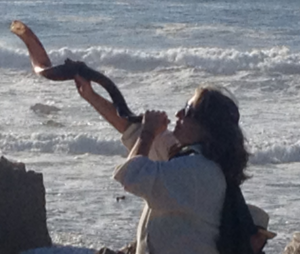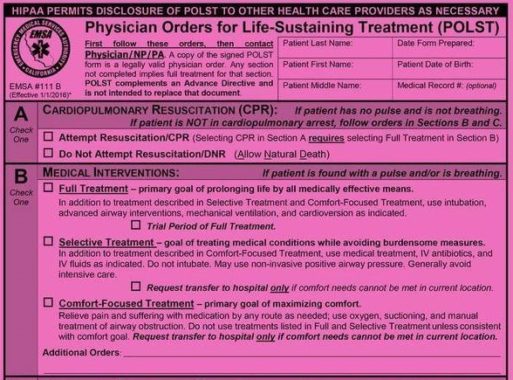In this first part of a two part interview, I sit down with Holly Blue Hawkins, founder of Last Respects Consulting (based in Aptos, California) to talk to her about how to best empower our loved ones before we die.
Editor’s note: This interview has been edited for length and clarity.
 Colleen Ferguson: Hi Holly, before we dive in can you first talk a little bit about what you do with Last Respects Consulting and end-of-life preparation?
Colleen Ferguson: Hi Holly, before we dive in can you first talk a little bit about what you do with Last Respects Consulting and end-of-life preparation?
Holly Blue Hawkins: I act as part concierge, part chaplain, and part coach. I like to meet people as early on in their process as possible — even when they’re feeling fine. I help them get their ducks in a row and get on with their life so they’re not dreading an important “homework assignment” that they haven’t completed. One which usually ends up getting “dumped” into someone’s lap at some point.
Colleen: “Ducks” like filling out their advance care directive?
Holly: Yes, I’ve heard so many people — whether they’re attorneys, hospice folks, or therapists — ask, “Why can’t we get our people to fill out their advance care directive?” So I started examining that question from my own perspective and realized that when most people sit down to do an advance care directive, there’s a lot of other stuff they haven’t sorted out. Too often we drop people into the middle of the process without walking them up to it, by first establishing their values, and then setting goals based on those values, and of course, putting a team together.
Colleen: What would you say is the dream team that one would need to put together?
Holly: Well, with the advance care directive, imagine yourself in a hospital setting and the kind of people you want looking after your affairs. You need “grace under fire.” Your person needs to be someone who really has their feet on the ground, doesn’t get thrown emotionally, and can intellectually make really good, sound decisions. This kind of person is going to prioritize what you specifically told them, i.e. your values over their values. This person is YOUR advocate, right? It needs to be someone who can be able to say, “Well, this isn’t necessarily the way I would want to do it, but this is what she told me, so this is how it is.”
Colleen: What are some of the other qualities your advance care directive advocate should possess?
Holly: You don’t want someone who’s going to hear a couple words and then glaze over. They should be able to understand “Doctor Speak…” I don’t mean they have to understand all the medical language, but they should be able to understand someone who is speaking from that paradigm, and not be afraid to ask questions like, “Hey, I don’t really understand what you mean by that, can you explain it in layman’s terms?”
So, really, your advocate should possess these qualities: Grace under fire, willing to ask questions, and engagement in the process.
Colleen: Which might not always be your spouse or best friend.
Holly: Exactly. Back when I worked as a paralegal and helped clients with their estate plans and advance care directives, I would run into so many couples where one spouse would say, “I want my spouse to be my advocate,” and the other one would say, “Well, I know you’re going to fall apart because of so-and-so, so we need to pick someone else for this.”
This means you don’t necessarily want to pick your firstborn just because they’ll be offended otherwise. Sort it out now and then work it out with them while you still have your wits about you, and the two of you can sit down and you can explain why.
So, really, you need to know your people. You may pick different people to take care of your cat vs. your checkbook. It’s not about trust, it’s about competency. Who’s going to be the best person for this job? So you may pick a very different person for your durable power of attorney than you would pick to do your hospital advocacy.
Colleen: Can you quickly explain the “durable power of attorney?”
Holly: Sure. It’s like paying the bills, running the household, making sure everything is paid. The classic picture I paint is everybody holding hands around the bed singing Kumbaya because they’re in alignment with the process, and then the lights get turned off because no one has paid the electric bill.
Or you get that awful phone call from the insurance company that says, “No, this procedure isn’t going to be paid for because no one paid the premium on time and your insurance has lapsed.”
The durable power of attorney will basically keep your “checkbook” safe and in working order. Maybe that’s the same person who will water your plants and make sure your pets get fed and walked, or maybe it’s not.
So, whether it be the durable power of attorney, the advance care directive, or the HIPPA, you’ve got several steps. If you look at your life and all the different aspects and say, “Who in my circle will be good for handling this bit?” Then, talk to that person, ask if they’re willing to do that for you, and then come up with the legals to empower them to do that.
Here’s something I really encourage people to do. When you give your person that empowering document, you also include with it a transmittal letter from you saying all the things that you want that doesn’t necessarily go in the legal document. So, when needed, they can pull it out and see, “Oh what did she say about this? Here’s the letter: She said I want this, I don’t want that, please make sure this does or doesn’t happen.” So, while they’re not part of the legal document, it can be their reference during times of duress.
Colleen: It seems like it allows everything to progress much more smoothly.
Empowerment is a big word in this whole deal. The point is to empower your people. First, you empower them by getting their agreement to do these things for you, then you empower them by knowing what you really want, and then you empower them with the legal documents they need.
It’s really important to find out how to make it easy for the ones you’re asking this of. You’re asking a huge favor of them, and the way to say “thank you” is to make it as easy as possible. There’s no way to make it EASY, because it inherently is not. But you’re asking a huge favor and it’s important to do everything you can to support your people.
Join us next week when we continue our interview with Holly and talk about natural burial and shrouding.

 How Do You Empower Your Loved Ones Before You Die?
How Do You Empower Your Loved Ones Before You Die?



 “As Tears Go By” by Marianne Faithfull
“As Tears Go By” by Marianne Faithfull
 “The Sea” by John Banville
“The Sea” by John Banville
 Funeral Favors Offer Visitors a Tangible Memento
Funeral Favors Offer Visitors a Tangible Memento















